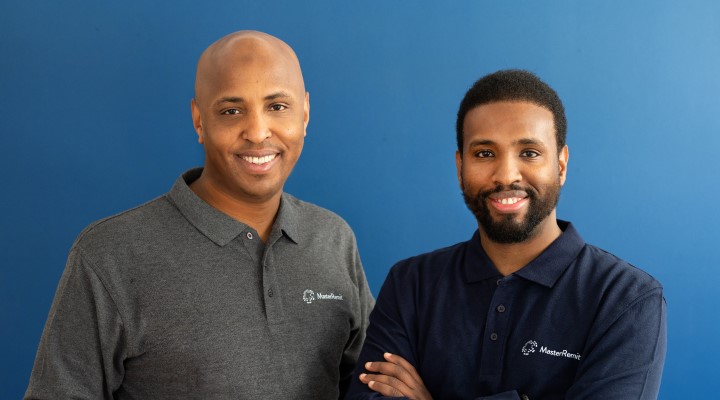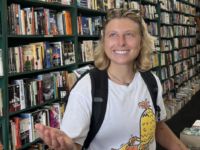Today, we talk to Nuradin Omar, who with his brother Hashim founded the MasterRemit, a financial services company that is focused on serving “unbanked” customers, those that have little to no access to banks or other financial service providers. Nuradin and Hashim took their life experiences as migrants and refugees from Somalia to set up the business, which aims to not only help the unbanked receive the services they need but also empower them so they can rebuild their lives and their dreams for themselves and their loved ones.
ISB: What led you to start your own financial remittance business?
NO: I received an emergency call from my family overseas, but because it wasn’t during business hours, there was no way for me to send money. It was incredibly frustrating as there were no institutions that could provide fast, reliable and low-cost fees, to allow me to help my unbanked relatives. I knew I couldn’t be alone in this problem, given the number of migrants in Australia, so Hashim and I started MasterRemit to change how money is moved around the world. Australia is the 11th largest remittance sending country in the world, in a global market worth $20.1 billion, so providing financial equality in this sector was really important to us.
ISB: What was the most challenging aspect of starting a business like MasterRemit and how did you overcome it?
NO: Australia is the fourth most expensive G20 country to send remittances from. For every $1000 money transfer, Australians pay $23 more than the Americans and $9 more than the British. Helping unbanked customers, who do not have access to a bank account or digital technology, is pivotal to our brand and something we’re trying to raise awareness of. There are two billion adults worldwide who do not have access to a bank account, or financial institution, to allow them to receive money. We’re trying to bridge that gap by connecting unbanked people to the world in a unified financial ecosystem, so they can receive payments instantly. We’ve recently hit a milestone of over 130,000 transactions processed and have more than 2800 active customers across the world, which is a great milestone for our business.
ISB: How is MasterRemit able to serve those unable to transact with banks or other financial institutions?
NO: We’ve developed a service which enables people to send money to their loved ones, regardless of their circumstances. Users can send money to loved ones through cash collection, which allows a loved one to send money from overseas to a nominated authorised collection point, or via a mobile wallet, where funds are sent instantly to a recipient’s mobile wallet.
ISB: In what way has your background as migrants and as refugees helped shape your business values through this venture?
NO: Hashim and I escaped the Somali civil war with our family at a young age. We didn’t have much schooling, and did not speak English nor did we know anything about technology. However, our parents had instilled within us a belief in hard work and education. With family and friends back in Somalia, we knew first-hand the difficulties surrounding sending money to loved ones. We could see clearly that excessive fees, exchange rates and a limited financial system prevented many from sending money. So, we started our own financial remittance business, in a bid to break down the existing financial barriers and inequality surrounding sending money internationally. Our backstory, family, and heritage have given us personal qualities like resilience, adaptability and the drive to succeed in this business.
ISB: How do you envision MasterRemit developing in the next couple of years?
NO: We hope to keep growing in this space and continue to shift the scales surrounding financial inequality for unbanked customers. We want to see families easily have access to funds when and where they need it, which is so important in these unpredictable times. If we can help solve the unbanked problem worldwide, then we’ll be addressing a huge problem for people globally. Hashim and I also hope to expand our services to South East Asia.
ISB: What is your advice for those dreaming to start their own business, especially those who are migrants or refugees?
NO: Take a risk and be prepared to leave your own comfort zone. Use the personal skills and qualities you’ve established from your experiences as a migrant or refugee, and bring those to your business. However, it’s also so important to follow your passion, as that will get you through the many ups and downs of owning a business.













